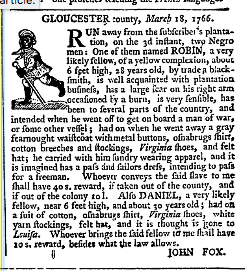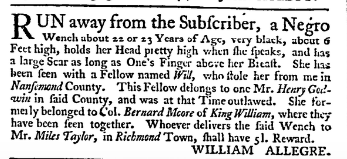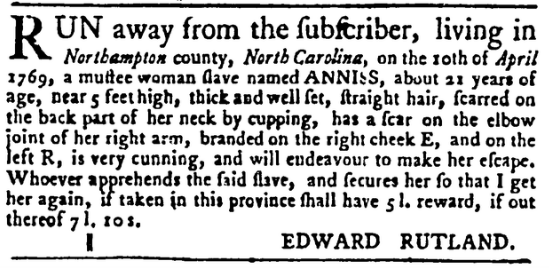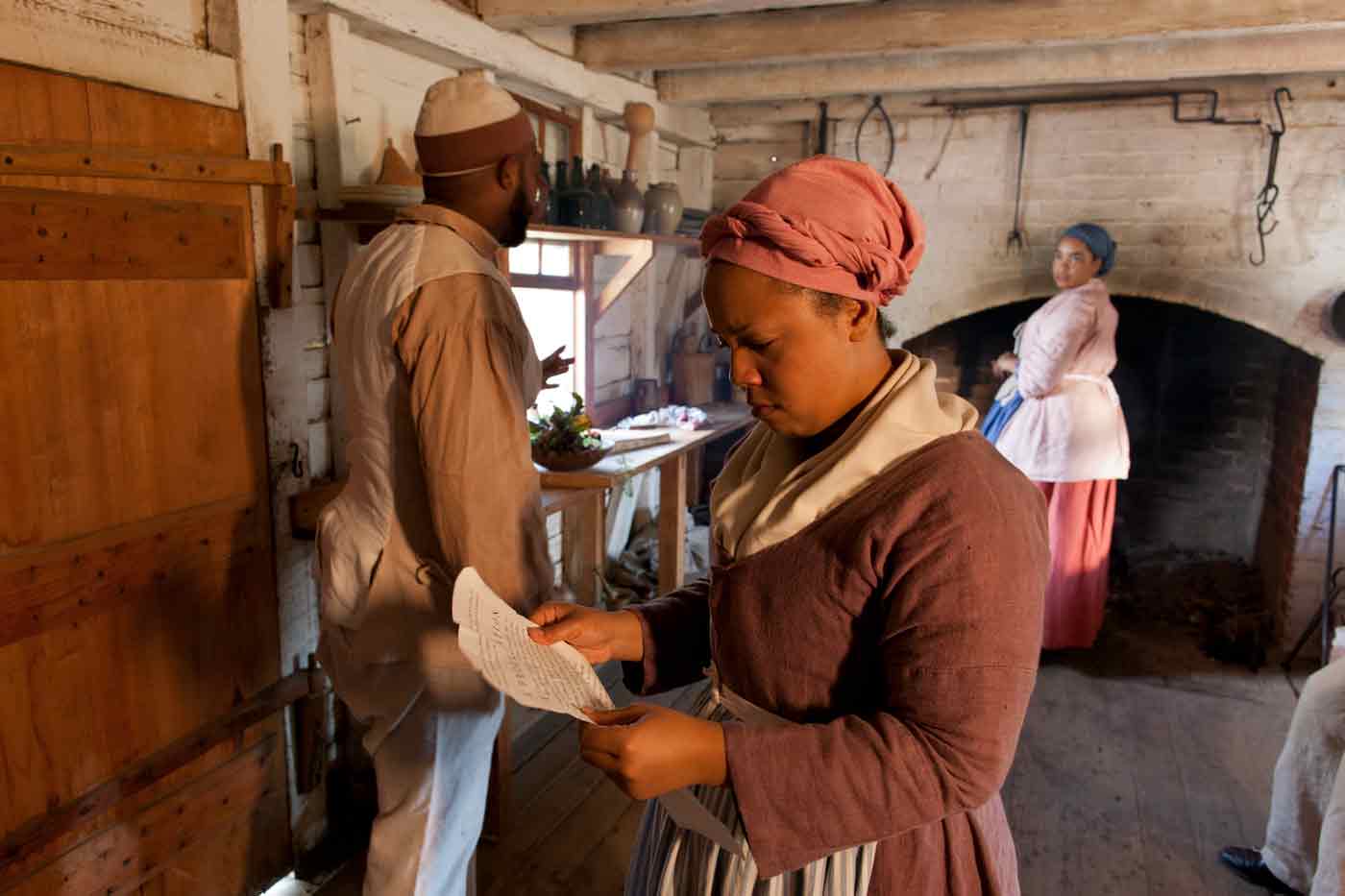Primary source documents are treasures for interpreters and the Virginia Gazette of the 18th century is one of my favorite places to explore and learn more about people of the time period, especially people who were enslaved. My focus is primarily Afro-Virginians since I represent enslaved and free blacks in scenes and interpretations at Colonial Williamsburg. Here are a few of my suggestions on how to examine runaway advertisements or runaway ads.
Be open. You never know what you will find! Sometimes we have to be specific in our research but still be open to articles on the periphery. You never know when you will find something or someone unique — like Sam, who purchased his freedom after serving in Dunmore’s War, or Sukey who has a lisp and shows her teeth when she laughs.

Recognize the Bias. These articles were written from a very specific perspective and for a very particular purpose. The adjectives used in runaway advertisements often painted a negative picture of a person. This tactic was used in order to help the subscriber (the person who placed the ad) to reclaim the people they considered to be his or her property.
Question the Ad. Through these primary sources, we can get a glimpse into the personality, skills, and physical descriptions of the people described in these ads. You also get a glimpse into the minds of those who wrote the article. Sometimes you notice that the ad omits certain information. It is ok to ask the advertisement why the subscriber included or excluded certain information.

Look for Patterns. Runaway ads follow a general formula, though there is no rule regarding how to write one. The more ads you read, the more you will notice almost a template of how they are written. It is good to look for patterns within a specific advertisement but do not stop there: look beyond. Has the subscriber been looking for this person for a while? Has the ad changed, and if so, how? Sometimes subscribers will have the advertisement placed in multiple gazettes and sometimes in different colonies. Sometimes you may notice a pattern of people running away from a particular property around the same time. These patterns or breaks in patterns, can inspire more questions that can deepen your research.

Looking at Runaway ads to learn about American history can teach us so much about the institution of slavery, an individual’s personal history, trauma, resilience, and give a glimpse into a person’s desires. My friend and mentor, Hope Wright, has taught me through her research, that these advertisements can be rich resources for us as historians and interpreters because of the descriptions of material culture they provide. I enjoy using runaway ads to inform my interpretations and give my historical figures opportunities to share the spreading of news, information about communities of enslaved and free black people, and literacy. To put these tips to the test and see what you can learn from runaway ads in 18th-century issues of the Virginia Gazette, visit the John D. Rockefeller Library’s digital collections.
This is just a brief overview of what one primary resource can teach us about some of the people who resisted slavery by running away. I hate the purpose for which these ads were created but I am grateful to use them to develop my characters and encourage others to look back and see something a little differently.
Deirdre Jones works as a Programming Lead Actor Interpreter, for the Colonial Williamsburg Foundation. She began at The Foundation full time in June of 2008 after graduating from The College of William and Mary with a B. A. in Theatre. Over the years she has performed in scenes, created interpretations and began exploring leadership opportunities. Deirdre enjoys a variety of interests and is always looking for ways to grow and serve. Psalms 37:4
